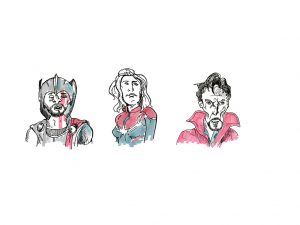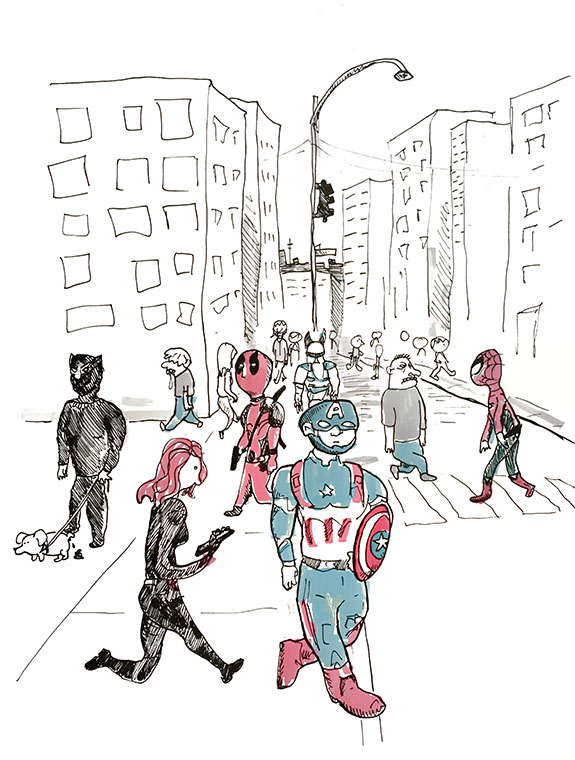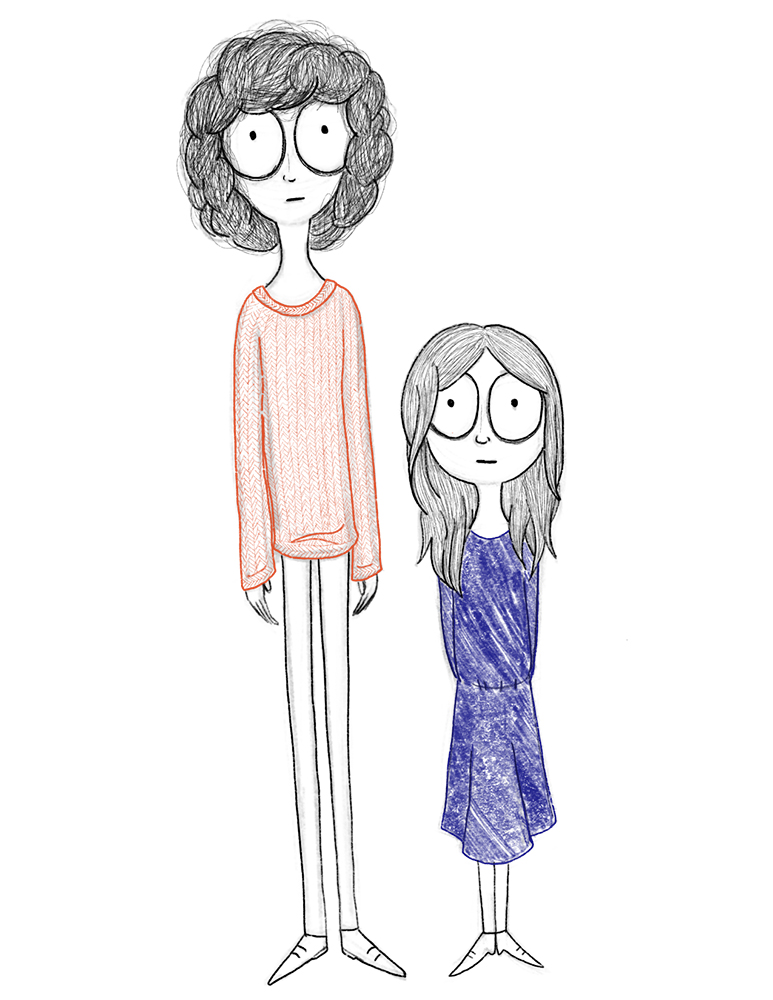With Marvel heading into “phase four,” it seems pertinent to ask: Will we ever be burnt out on superheroes?
As of July 21, Marvel Studios have announced their plans to go ahead with five more films into the year 2021, along with multiple smaller projects for television. Black Widow, Thor, and Doctor Strange are spotlit, with each having their own films in the works.
Many expressed excitement over this. To quote directly, @DC_Marvel18 Tweeted, “I’M SO EXCITED!!!!!” Yes, that’s five exclamation marks and yes, they used a meme of Sebastian Stan as Bucky Barnes shooting emoji hearts out of a gun. Marvel has dedicated fans and they have plenty to look forward to. They’re the ones that shot Avengers: Endgame into the position of highest-grossing film of all time.
On the other hand, non-fans are fatigued. Twitter user @ianamurray states, “idk i used to love the mcu but at some point i just got bored.” [sic] Not everyone has an interest in superhero films and it’s beginning to seem like that’s all there is at the local multiplex.
This brings us to Disney. Disney owns Marvel Studios and has since 2009. Aside from owning Marvel, Disney owns all content from ABC, 21st Century Fox, Touchstone Pictures, Lucasfilm, Hollywood Records, and Core Publishing. They also hold large shares of ESPN, A&E, the History Channel, Lifetime, Hulu, and VICE. Some consider this close enough to a monopoly to warrant concern. Emily Todd VanDerWerff writes in Vox, “if Fox is now part of Disney, then it’s hard to imagine that we’re not heading toward a universe where essentially all of the major media providers in the world are owned by three or maybe four companies. And while the most obvious issues with that stem from how media consumers are able to get news that takes on corporate interests, there are a host of others that range from the political to the artistic.” Disney having a grip on almost every major entertainment property in the world doesn’t exactly paint a picture of a diverse media landscape.
The effect this could have is already becoming clear. Disney puts out less original content per year than remakes or off-shoots of old content. Aside from all of these live-action remakes being an obvious cash grab that preys on the nostalgia of disenfranchised millennials, it’s simply lazy work. Instead of using a state-of-the-art animation and design team to create something fresh and new for children, the Disney corporation has chosen the guaranteed money route; the route that keeps their brand fully intact without needing to put much thought into what makes them powerful in the first place.
If this ethic were to sneak its way into all of the other studios that Disney owns, we’re looking at something of a creativity deadlock. Movies can be made, but only if they’re guaranteed to make money. And the only way to guarantee money is to play it safe.
But do we want filmmakers to play it safe? Does every film granted a big budget have to be franchisable? I’m hoping not. Not everyone has to be tired of Marvel or Disney or Star Wars. Loving those things is great and not an unpopular opinion. However, there’s a part of me that hopes that, at some point in the not-so-distant future, one of those things fails. If money makes the world go round, the only way to diversify the film industry is to let big budget films fall flat. But we’re not there yet.
Instead, films without a franchise attached are going to continue to underperform. Films like Booksmart, The Last Black Man in San Francisco, and The Farewell will not reach wider audiences than your typical film student (or, at least, film student at heart). But these films carry stories arguably more important than your typical franchise. They explore different kinds of protagonists; repressed teenage girls, a black man facing gentrification, or a Chinese-American woman dealing with cultural differences surrounding grief. Marvel films are emotionally resonant, but they aren’t allowed to be this specific. The less money these films make, the less likely it is that films like them will be made in the future.
This is the true loss associated with the Disneyfication of popular film. The more money something must make to cover the costs of a Disney-branded film, the more generic it must be. Stories that don’t apply to the majority get lost in the shuffle of heroic action and comfortable Disney properties. Disney and Marvel have attempted to make their films more diverse, casting a Black actress as the next Little Mermaid and hinting at making Tessa Thompson’s Valkyrie character queer, respectively. But let’s be real: This isn’t enough. Seeing people like you on screen, especially in these franchises, can be a powerful thing. But this lip service to diversity is few and far between and doesn’t represent the struggles specific to the communities it aims to give a voice to.
Someday, something will have to give. Maybe it’ll be Marvel, maybe it’ll be Disney proper. But the burnout will come. As long as these studios keep pumping out similar films at the rapidly accelerated rate they are currently at, it’s only natural that people will stop buying. And when they do, I hope they choose to give their attention where it’s most needed.






